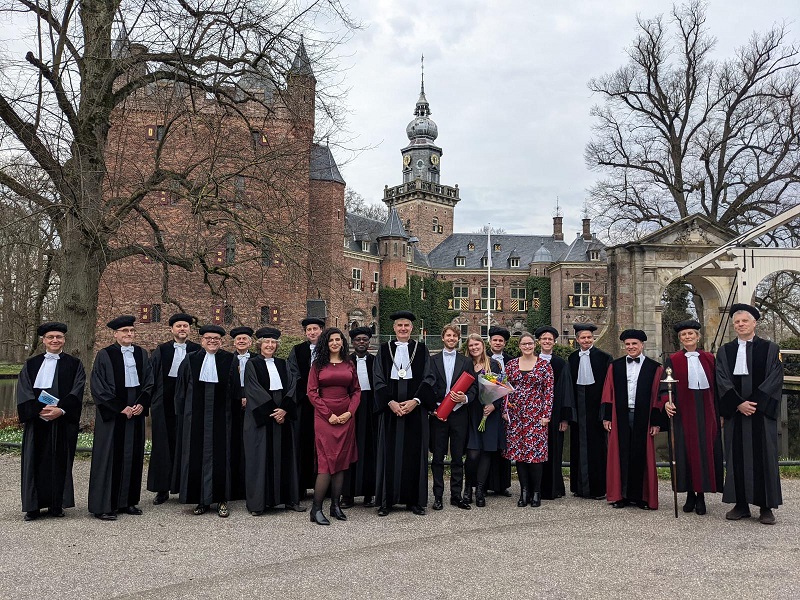Auditors are able to work more transparently and efficiently by using Bayesian statistics. That is the main conclusion of Koen Derks’ research, who obtains his doctorate from Nyenrode Business University today. Techniques to apply Bayesian statistics in the audit have been made freely accessible by Derks, through the open-source program JASP. “Auditors should be bold enough to deviate from ways already paved more often.”
During audits of financial statements auditors often use statistics. For example, they can use statistical samples to determine the risk that they have overlooked a material misstatement in the financial statements. The ‘frequentist’ approach to statistics is standardized and embedded in the daily actions of auditors in such a way, that they usually do not realize that auditing the financial statements can be greatly improved. How? By using Bayesian statistics.
Advance information
“The idea behind this type of statistics is that you include prior information in your calculations”, Derks explains. “The way it works now is that auditors basically take samples in the same way every time, so for example they take 299 samples to show that the financial statements contain no more than 1% misstatements. But information from previous years or from audit activities that show that the risk of misstatements is very low, for example, is not or hardly included. In addition, other relevant data are usually ignored, such as integrally available information about the number of FTEs responsible for the administration of a certain item, or how often there has been a delay in payment. It's a waste not to include that kind of information into the statistical analyses, because it will make your audit more transparent and efficient.”
Responsibility
Corporate social responsibility requires government agencies and companies to provide correct and reliable information and to be held accountable for their expenditure. Derks argues that by making use of all available data, auditors are more capable of meeting that need for transparency. “With Bayesian statistics you make it very explicit which information you have used, how you have translated it and what the impact of that information is on your follow-up activities and final assessment. This makes it easier for regulators and other stakeholders to, for example, monitor the flow of information.”
Oral arguments
Derks acknowledges that there are also disadvantages to the Bayesian method. “It is not always easy to translate the prior information into usable information. And it takes time. My plea, however, is that auditors should more consciously weigh the pros and cons of both the Bayesian and traditional approach, and then decide which approach best fits the situation in practice and the question they want answered. Start by specifying what information is already available and build on that, rather than simply doing what you've always done.”
Open-source software
Derks basically argues that auditors should look beyond what is right in front of them and make more use of the large amount of prior knowledge and (big) data that is currently available. To help them with that, he started programming. “Through open-source software – called JASP for Audit – any auditor can apply traditional and Bayesian statistics for free. I am strongly in favor of more scientific research into how statistics can improve audits, but in line with Nyenrode's mission, I am also looking to bridge the gap between science and practice. Because we work with open-source software, it is accessible to everyone, and auditors can learn from each other. Instead of doing your own thing in isolation, there are now more opportunities to work together. So don’t be afraid to deviate from the ways already paved, because there is more to be gained from statistics than meets the eye.”

